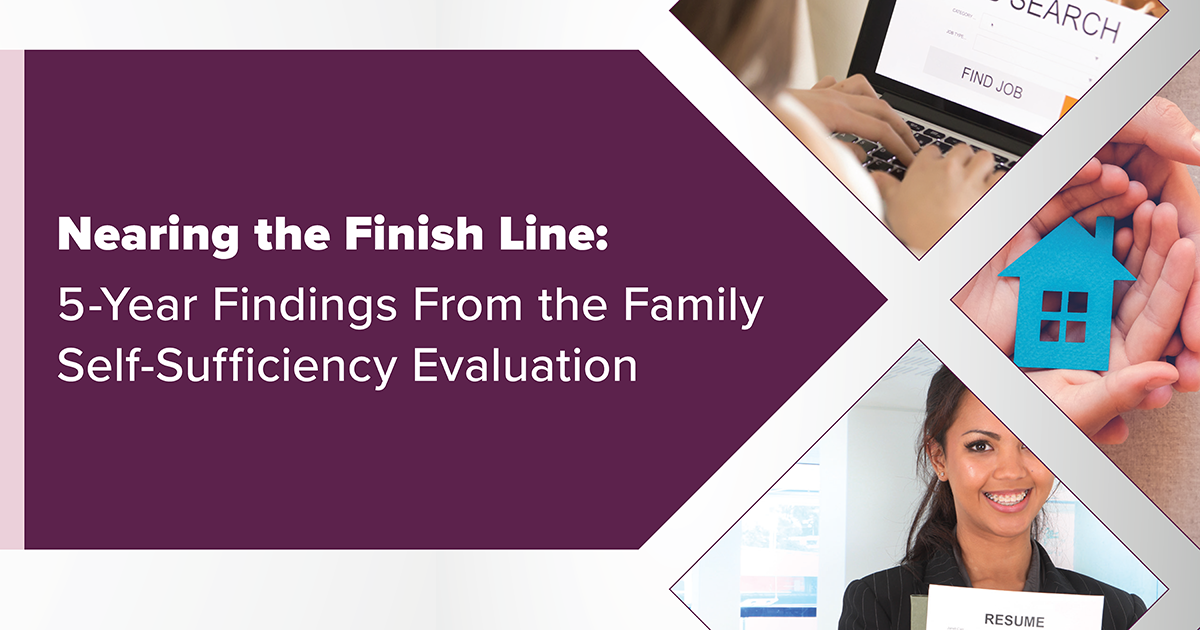Nearing the Finish Line
Five-Year Findings from the Family Self-Sufficiency Evaluation

In 2012, the U.S. Department of Housing and Urban Development commissioned a national random assignment evaluation of the Family Self-Sufficiency (FSS) program’s impacts on labor market and other quality-of-life outcomes for households receiving Housing Choice Vouchers (HCVs). The FSS program has two key components: case managers who work with participant households to develop individualized self-sufficiency plans and to access other community services, and savings and asset development via interest-bearing escrow accounts based on increases in earnings.
This report examines FSS program implementation, participants’ engagement in the program, and program impacts on labor force participation and government benefits receipt five years following random assignment. The research team’s findings are largely unchanged from the prior interim report. Among the key results, the study concludes that FSS increased participation in a range of employment-related services, particularly education and financial literacy; that participants in the FSS program did not experience a sustained increase in employment rates or average earnings; and that FSS participants experienced steady shifts from part-time to full-time employment.
Document Details
Freedman, Stephen, Nandita Verma, Betsy L. Tessler, and Barbara Fink. 2023. Nearing the Finish Line: Five-Year Findings from the Family Self-Sufficiency Evaluation. Washington, DC: Office of Policy Development and Research, U.S. Department of Housing and Urban Development.







